67 years of history, picturesque campus, and training of global professionals
Kyungnam University Stands Out
among Private Universities in Korea
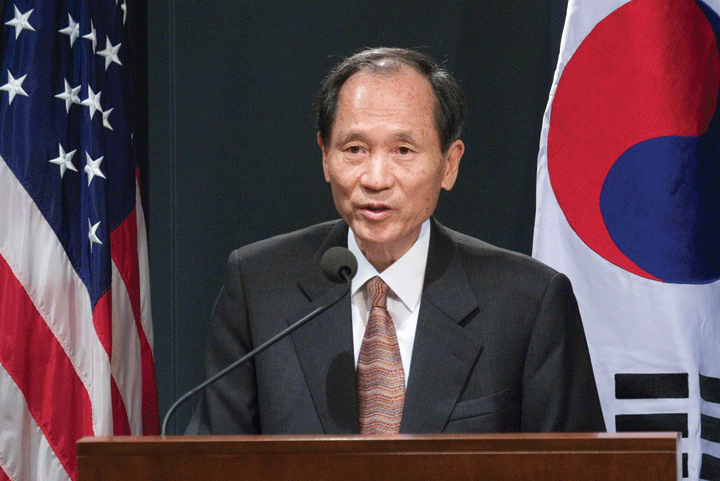
Kyungnam University (KU) in Changwon City--some 248 miles southeast of the capital of Seoul--stands out from other universities in Korea thanks to its various outstanding features.
In 1946, KU was established on the grounds of Kookmin College, which had been set up by famous Korean independence leaders such as Syngman Rhee (President of the First Republic of Korea), Kim Gu (several times president of the Provisional Government of the ROK), and Shin Ik-hee (speaker of the first-term National Assembly of the ROK). With Mr. Shin as its first president, KU was founded as a private university. In March 1982, KU was accredited the status of a full-fledged university in Korea. This year marks the 67th anniversary of its founding--another year in which KU has strived to fulfill its aims of nurturing culturally responsive professionals, enterprising leaders of regional development, and proud citizens of Korea’s national identity.
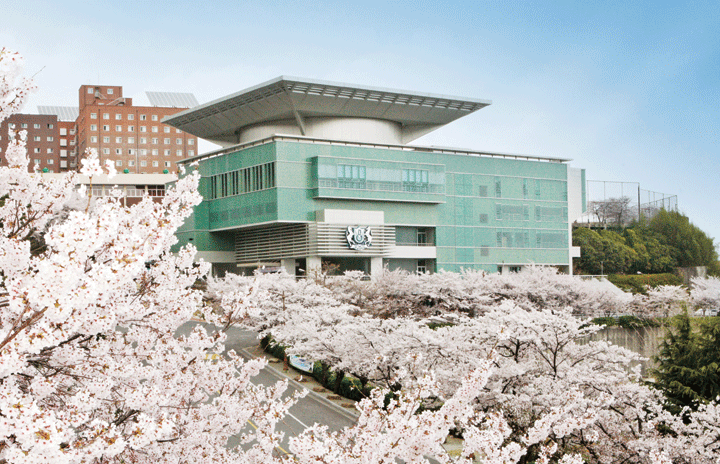
On the strength of its long history and swift development, Kyungnam University has been preparing students to meet the challenges and opportunities of the era of internationalization and globalization, as well as meet the needs of local society by providing students with specialized education distinct from other universities.
Today, Kyungnam University has six colleges, four undergraduate divisions, 46 departments, and 15 research institutes. It has a total of 15,000 students, over 900 professors and other faculty members. The university also boasts more than 120,000 alumni, which form a reliable source of support.
The Wolyeong Campus, known for its picturesque landscape, provides students with a natural, friendly environment where they can become absorbed in their studies. The park-like campus is enjoyed year-round by students and citizens living in the surrounding communities.
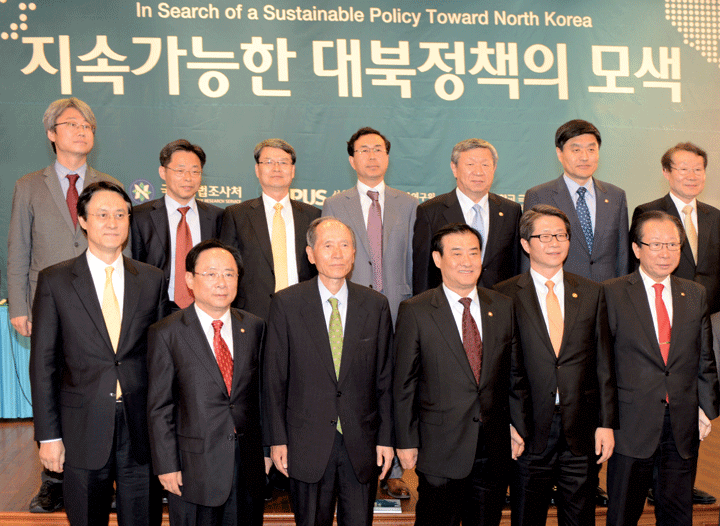
KU Alumni: a foundation of support
Kyungnam University is well known not only for its long history but also for its large and generous alumni. The over 120,000 people who make up its alumni are active in various segments of society and form a reliable source of support and assistance for the university. KU’s alumni are actively engaged in various professions in politics, economics, administration, education, journalism, and other fields, where many of them play leading roles.
For example, at last April’s general elections, two alumni were elected as members of the National Assembly, including Rep. Lee Yoon-seok (Democratic Party), a graduate of KU’s Department of Political Science and Diplomacy. Mr. Ko Yeong-jin, a graduate of the Department of English Language Education, serves as the current educational superintendent at the Education Office of the Provincial Government of Gyeongsangnam-do. As well, Mayor Park Wan-su of Changwon City is a graduate of KU’s Department of Public Administration. Most recently, Mr. Kim Byong-seop, who graduated from the Department of Business Administration, became ROK ambassador to El Salvador.
Careers abroad: alumni in academia
A number of KU’s graduates have gone on to pursue careers abroad, especially in academia. An expert in the field of nuclear energy, alumnus Chang Jeong-uk (1974, Department of Economics) is currently an economics professor at Matsuyama University in Japan. Yuk Hyeon-kyun (1993, Food Technology and Science) is a food science professor at the University of Singapore. Other esteemed graduates have also found professorships at universities overseas--Moon Kyong-yeol at Renmin People’s University in China, Kim Mung-nam at Versailles Art University in France, and Lee Yeong-hee at Foothill University in the United States.
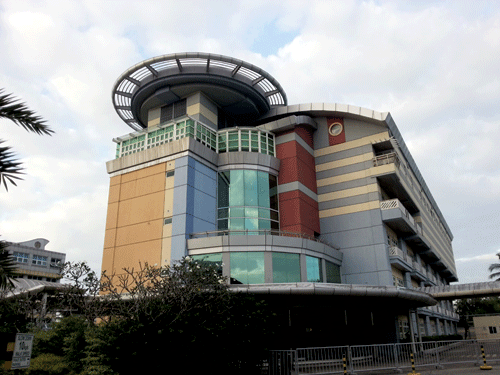

English-language school overseas
Understanding the importance for students to acquire high-level second-language skills in the era of globalization, KU began to upgrade its English-language education opportunities for its students. As one part of this effort, in 2006 KU established an English-language school inside the campus of Trace College in the Republic of the Philippines. This was the first such school abroad to be established by a Korean university. This school implements a systematic language training program for KU students to improve their English skills, with the aim to increase their competitiveness as they seek employment after graduation.
In addition, with the generous scholarship support provided by Changwon City, KU is able to offer short-term training and overseas exchange programs for its students at post-secondary institutions such as the University of North Florida in the USA. KU also has a ‘Global Buddy’ program where KU and foreign university students can have one-on-one exchange of language and culture, and operates the annual ‘Global Hanma?where foreign students from KU's sister universities abroad are invited to visit the campus in August for educational experiences.
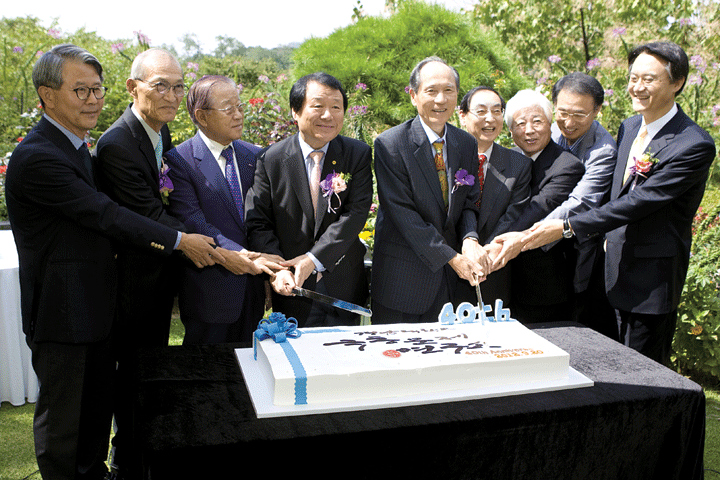

Global KU: sisterhood relationships with 65 universities worldwide
In order to train individuals to become professionals that can meet the challenges of globalization, KU sends over 500 students each year to participate in the various exchange and cooperation programs it has with its 65 sister universities in 19 different countries (i.e., Bulgaria, Canada, China, Denmark, Germany, Hong Kong, Hungary, Indonesia, Japan, Mexico, Mongolia, Nigeria, North Korea, Philippines, Russia, Taiwan, Thailand, the United States, and Vietnam).
Three major specialization projects for intensive training
North Korean Studies: As one of KU’s targets for specialization, North Korean studies is actively advanced through the work of the university’s research arm, the Institute for Far Eastern Studies (IFES), and Graduate School of North Korean Studies. These two institutions provide KU students interested in North Korea and Korean unification issues with a competitive edge, offering them the expert training and knowledge needed to become highly-qualified professionals on affairs related to North Korea and unification.
Defense Industry: As part of its regional industrial specialization project, KU targets the defense industry and ‘Green Mechano’ for specialization, taking advantage of the region’s well-established industries in this sector. KU concentrates on cultivating specialized manpower with technological expertise so as to carry out the development of the country’s next-generation new growth engines in industry.
Marine Well-being Facilities for the Elderly: KU also pays due attention to the country’s ageing society. Taking advantage of the excellent natural environment of the region adjoining the sea, the university is involved in the development of ‘marine well-being’ facilities for senior citizens. KU plans to train people in order to develop the qualified manpower that can lead various projects for the preservation and promotion of senior citizens’ health. This is to be done through the ‘Healing City’ and other programs and services that promote health and welfare of the aged.
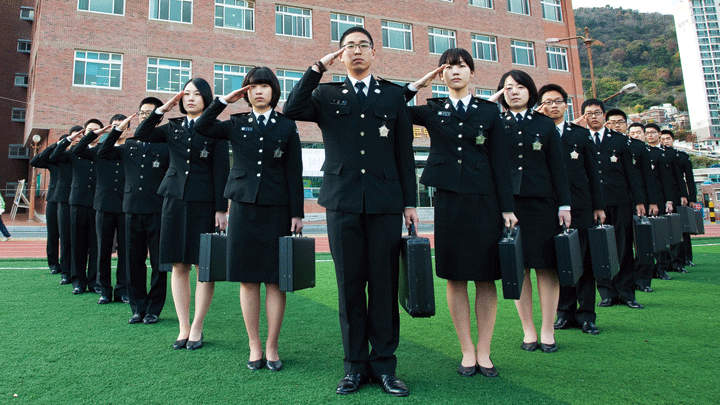
Improving students’ competitiveness for employment
KU has been implementing various programs on campus to strengthen the competitiveness of students so that they will have a better chance of securing meaningful employment in the future.
For instance, the university provides each student with an employment coach who helps the student by making suggestions and recommendations on various career and employment related matters, including consultations, screening of job application forms, and pre-job interview preparation.
KU also provides prompt and systematic services to help students to seek full-time and part-time employment. For this purpose, the university actively participates in various government programs to help young people with employment, improving and increasing the graduates’ chances of securing a job.
To help students identify and determine the career best-fit for them, an employment class is included in the regular curriculum. Students are offered an opportunity for internship and on-the-job training at various business organizations, providing them valuable work experience.
In addition, other services offered to students include a ‘find-a-job camp’, employment-oriented English language training camp, employment guidance program, work performance improvement program, work performance aptitude test, employment academy, and various other programs and services.
There are over 8,000 different business organizations in Changwon City and the surrounding localities including the Masan Free Trade Zone and Changwon Industrial Complex, providing graduates of KU with ample opportunities for future employment.
2013 MOE support candidate to increase education capacity
Kyungnam University was selected by the Ministry of Education (MOE) on July 31, 2013 as a candidate university to be provided with support from the 2013 Educational Capacity Strengthening Project. KU was selected as a result of examination and fair competition among local private universities with a student body of over 10,000 students. Evaluations included such criteria as graduate employment rate, student recruitment rate, student achievement, curriculum management, scholarships, investment in student training, tuition reduction rate, student-faculty ratio, and so forth. Under this program, KU will receive 3.8 billion won in subsidy from the government for one year.
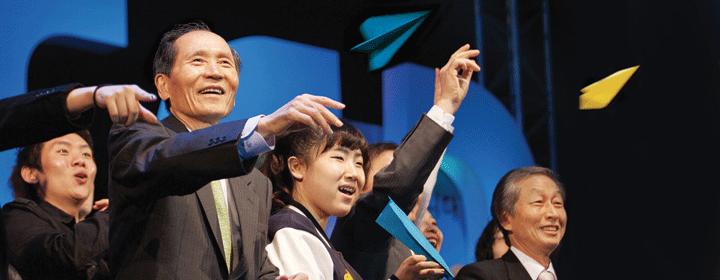
Global education and peace and unification studies
In 1972, KU founded the Institute for Far Eastern Studies (IFES), a research-oriented think tank that promotes peace and the unification of Korea through scholarly contributions focusing on the Korean peninsula and Northeast Asia. Though fundamentally dealing with international relations, IFES is also concerned about advancing the quality of life, and thus is eclectic in its research activities, also investing in such issues as the rule of law in Korea and the welfare of North Korean defectors.
IFES is primarily engaged in research concerning North Korea, Korean unification, and East Asian affairs. The institute organizes and sponsors numerous conferences, seminars, workshops, and lectures annually. It also publishes original and translated works in Korean and foreign languages, including a number of well-known periodicals such as the English-language journal of social sciences and world/comparative politics, Asian Perspective, and Korea and World Affairs. It also boasts strong global partnerships with a number of foreign think tanks and foundations, including the Woodrow Wilson International Center for Scholars, Friedrich Naumann Foundation for Liberty, Shanghai Institutes for International Studies, and La foundation Chirac.
Since its beginnings, IFES has prided itself in being able to provide research facilities for scholars and students working in Asian and international affairs, in particular library facilities that hold various North Korean research materials. IFES also runs several important programs for scholars and the general public including the Korean National Community Leaders Program, Academy of Inter-Korea Economic Cooperation, Summer Studies Program in Korea (SSPK), and NK Cyber Education System.
In recognition of its achievements, IFES was selected as a recipient of support from the National Research Foundation of Korea in 2011.
IFES celebrates its 40th anniversary this year.
Olympic gold medalists
In the early 1970s KU established the Department of Physical Education. Since then, KU has been training outstanding sportsmen, in particular through its sports clubs including wrestling, Ssireum, shooting (marksmanship), and baseball. Through its sports programs KU has laid the foundation for the development of sports in the South Gyeongsang Province.
As a result of its dedication to producing high-caliber athletes, 1998 KU graduate Jin Jong-o won two gold medals in shooting (men’s 10-meter air pistol; 50-meter pistol) at the London Summer Olympic Games in August 2012. Fellow graduate Kim Hyun-woo (2007) won an Olympic gold medal in wrestling (men? 66kg Greco-Roman) that same year--Korea’s first wrestling gold medal in eight years.
KU Marksmanship Club member Choi Soo-keun (2001 graduate of the Department of Physical Education) also honored the university by winning three gold medals in the men’s marksmanship competitions at the International Olympic Committee-sanctioned 2013 Deflympic Games in Sofia, Bulgaria.
Throughout the years, members of KU’s Department of Physical Education have performed exceptionally well, placing in the top ranks and producing excellent results at various provincial and national athletic competitions.
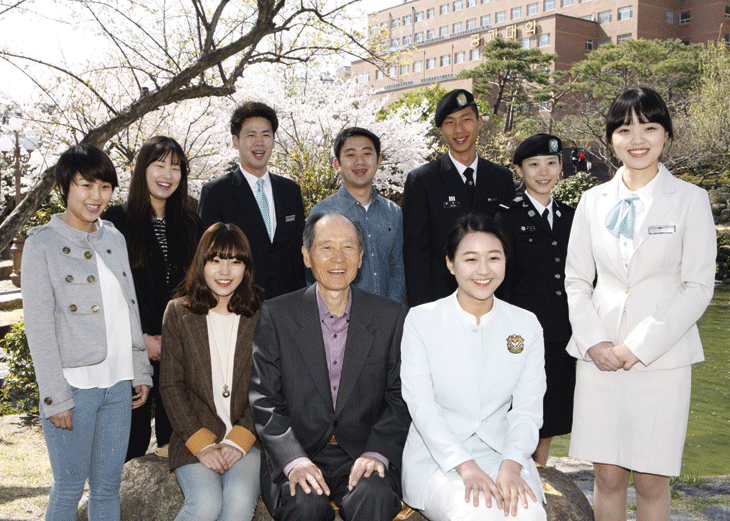
Illustrious president
Kyungnam University President Park Jae Kyu is celebrated both in Korea and internationally as a pioneer in North Korean studies and promoter for the advancement of higher education.
He completed his university education in Korea and the United States, earning his PhD in political science from Kyung-Hee University, after which he worked as a professor at Kyungnam University and director of the Institute for Far Eastern Studies, which he established in 1972 as a prominent research arm of KU.
President Park is the former Minister of Unification and former Chairman of the National Security Council (NSC) of the Republic of Korea. During that time, he played an instrumental role as the architect of the historic first-ever inter-Korean summit of June 2000.
President Park has also served as president of the University of North Korean Studies (2005-2009), the chairman of the Korean University Presidents Association (2001-2004), ISANG YUN Peace Foundation (2005-2009), and Northeast Asian Forum of University Presidents (2003-2011), among other associations.
Among his many roles, he served as a presidential advisor on Korean unification affairs and as a member of the Presidential Committee on Social Cohesion.
He has received numerous honors and awards, including the prestigious Special Prize of the Jury (for Conflict Prevention) from the Chirac Foundation of France (2009) and Special Award from the US Congress (2009). Among his many writings and edited publications in Korean and English are several books, including North Korea’s Foreign Policy (1977), North Korea’s Military Policy (1983), Politics of North Korea (1984), New Diplomacy of North Korea and Its Survival Strategy (1997), A Guide to Understanding North Korea (ed., Korean, 1997), New Readings of North Korea (ed., Korean, 2004), and North Korea’s Dilemma and Future (ed., Korean, 2011). k

